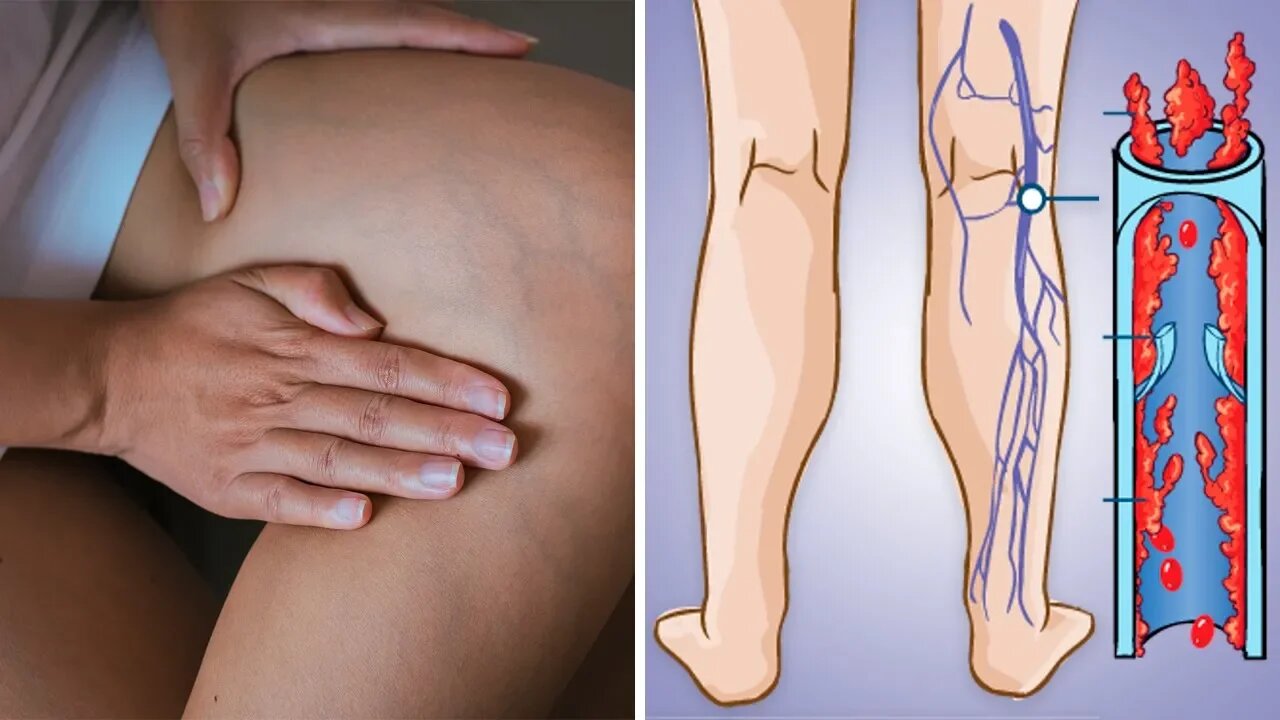Premium Only Content

7 Warning Signs of a Blood Clot That Can't Be Ignored
Blood clots are caused by a variety of things and can exhibit signs and symptoms depend upon the location of the clot
Do you normally go on long plane rides? If you do, you probably already know that staying seated for long periods of time on airplanes can be very harmful to your circulatory system.
If you’re a woman, you've probably already heard that taking birth control pills for long periods of time is not good for your health.
But what do long plane rides and birth control pills have in common?
Both of them highly increase the chances of you developing a blood clot.
When it comes to birth control pills, these contain female hormones in different forms that may increase the risk of blood clots.
When we ride in airplanes, we may develop blood clots because we stay seated for long periods of time without moving our legs. This immobility makes it harder for our blood to circulate from our legs and feet back to our heart.
When our blood starts traveling at a slower pace inside of our veins, that's when blood clots happen. When these clots keep our blood from flowing in our veins, we call that Deep Vein Thrombosis (DVT).
These blood clots normally dissolve on their own, but they can be fatal if they spread it to another part of our body, such as our lungs or heart. The problem is that it’s not always easy to identify these clots.
Here are the seven most common symptoms of blood clots:
Your arm or leg is swollen
Your arm or leg is red and hot to the touch
Your heart is racing and you can't breathe
One of your arms or legs hurt
You feel as if you are having a panic attack
You feel a sharp pain in your chest
You’re coughing blood
At the first sign of a blood clot, seek medical attention from a hematologist.
----------------------------------------
Facebook: https://bit.ly/38BWbw3
Pinterest: https://bit.ly/2Irvwa6
Disclaimer: The materials and the information contained on Natural Cures channel are provided for general and educational purposes only and do not constitute any legal, medical or other professional advice on any subject matter. These statements have not been evaluated by the FDA and are not intended to diagnose, treat or cure any disease. Always seek the advice of your physician or other qualified health provider prior to starting any new diet or treatment and with any questions you may have regarding a medical condition. If you have or suspect that you have a medical problem, promptly contact your health care provider.
-
 3:40
3:40
Natural Cures
1 year ago $1.10 earnedToothpaste Is All You Need To Keep Mice Away From Your House
4.37K6 -
 28:39
28:39
The Why Files
3 days agoCryptids Vol. 4 | Bunyips, Yowie and Australian Nightmare Fuel
26.1K38 -
 1:07:06
1:07:06
Mike Rowe
18 days agoThe Fight For America's Heartland | Salena Zito #442 | The Way I Heard It
19.4K45 -
 2:43:30
2:43:30
TimcastIRL
4 hours agoSouth Park Goes FULL CHARLIE KIRK, Latest Episode ROASTS Trump Again | Timcast IRL
186K72 -
 LIVE
LIVE
SpartakusLIVE
5 hours agoThe Return of the KING of Content
529 watching -
 10:05
10:05
MattMorseTV
8 hours ago $0.64 earnedHe actually did it...
34.5K17 -
 1:32:39
1:32:39
Anthony Rogers
1 day agoEpisode 376 - Todd Schowalter
12.5K -
 3:42:07
3:42:07
megimu32
4 hours agoOTS: Movie Tie-In Games + Remakes: Let’s Play Memory Lane
17.8K6 -
 1:15:06
1:15:06
Adam Does Movies
11 hours ago $0.02 earnedTalking Movies + Ask Me Anything - LIVE
22K -
 1:17:18
1:17:18
Glenn Greenwald
1 day agoWhat are CBS News' Billionaire Heirs Doing with Bari Weiss? With Ryan Grim on the Funding Behind It; Europe Capitulates to Trump Again | SYSTEM UPDATE #494
102K81